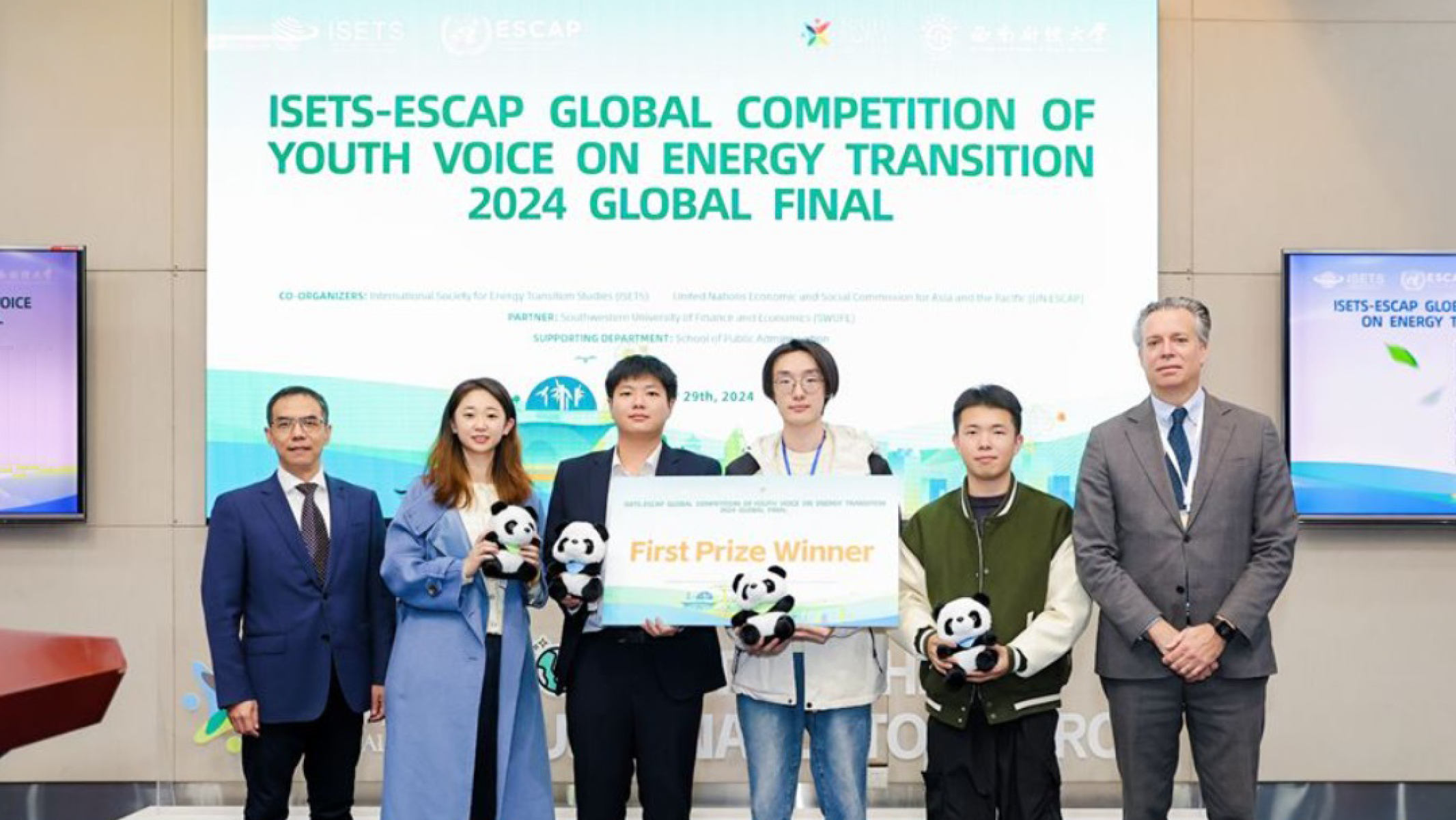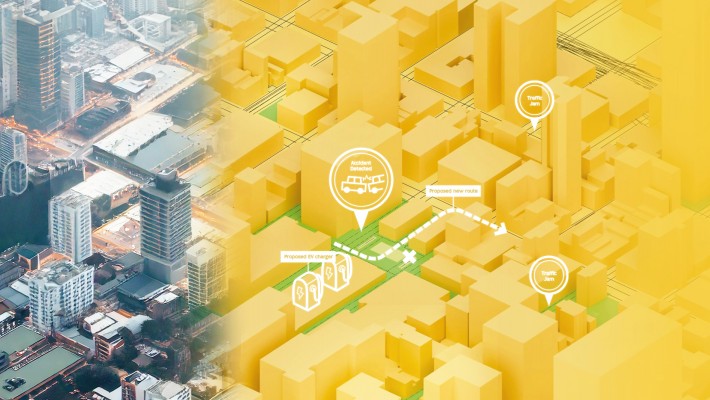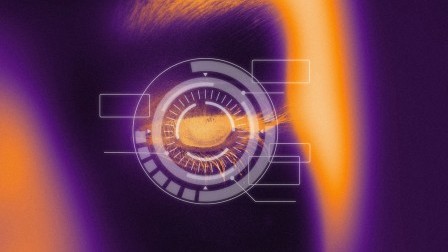PhD Students Win First Prize for Sustainable Transportation Simulation Solution
Dynamic digital twin technology promises to overcome hurdles in designing a blueprint for transport electrification
Did you know that transport–including road travel, aviation, shipping and rail–accounts for around one-fifth of global carbon dioxide emissions? Given the growing concern over climate change, the electrification of transportation appears inevitable.
Transport electrification means more than the adoption of electric vehicles (EV). It also requires holistic policies and careful planning to drive the development of infrastructures, technologies and the market. However, the rapid growth in EV numbers, the dynamic evolution of modern cities, and population fluctuations are making such planning more complex and difficult.
A team of three PhD students from PolyU’s Department of Building Environment and Energy Engineering (BEEE) has proposed a solution to overcome the hurdles in drafting an electrification blueprint. The idea has already won Zhang Junxiang, Zhu Shibo, and Chan Dayin, in collaboration with another student teammate, Chen Haolan from Shanghai Jiao Tong University, the first prize in the Northeast Asia division in the 2024 ISETS-ESCAP Youth Voice Competition. They went on to win the Global First Prize in the finals held in Chengdu.

BEEE Postdoctoral Fellow Dr Du Ying (second from left) and three PhD students – Zhang Junxiang (third from left), Zhu Shibo (third from right), and Chen Dayin (second from right) – won the Global First Prize in the 2024 ISETS-ESCAP Youth Voice Competition.
Leveraging digital twin technology
Operating under the International Centre of Urban Energy Nexus at PolyU, the “Energy Victory” team is supervised by Professor Jerry Yan Jinyue, Chair Professor of Energy and Buildings at BEEE, and Dr Du Ying, Postdoctoral Fellow at BEEE. The project, titled “Drawing the Blueprint of Traffic Electrification with Digital Twin”, leverages software-driven simulations to promote sustainable transportation solutions aligned with the United Nation’s Sustainable Development Goals (SDGs).
A digital twin is a virtual representation of an object or system designed to reflect a physical object accurately. It spans the object’s lifecycle, is updated from real-time data, and uses simulation to mirror and predict performance. By simulating complex systems, the technology can enable better planning. Digital twins can also provide predictive analytics for proactive decision-making and enhance collaboration across sectors.
In the case of transport electrification, the technology can enhance decision making in areas such as traffic flow optimisation and clean energy integration. According to the prizewinning team, it can also improve power grid load management, logistics management, market demand forecasting, infrastructure placement and urban redevelopment.
Promoting sustainable energy solution talent
The ISETS-ESCAP Youth Voice Competition, organised by the International Society for Energy Transition Studies (ISETS) and the United Nations Economic and Social Commission for Asia and the Pacific (ESCAP), attracted approximately 300 submissions from 77 teams across 37 countries and regions. The competition serves as a platform for young leaders worldwide to showcase innovations that contribute to sustainable energy systems.
In addition to their competition success, the PolyU team was honoured to attend the 13th International Forum on Energy for Sustainable Development at the UN Conference Centre in Bangkok. The event enables leading experts to present research and discuss strategies for sustainable energy transformation, engaging youth with policymakers and international organisations to accelerate the global energy transition.
The achievements of these enthusiastic PhD students underscore PolyU’s commitment to fostering emerging researchers and its leadership in promoting sustainable energy solutions.
This winning project aims to foster the following United Nation’s SDGs in the transportation sector:
- #7 - Affordable and clean energy
- #11 - Sustainable cities and communities
- #13 - Climate action






